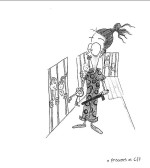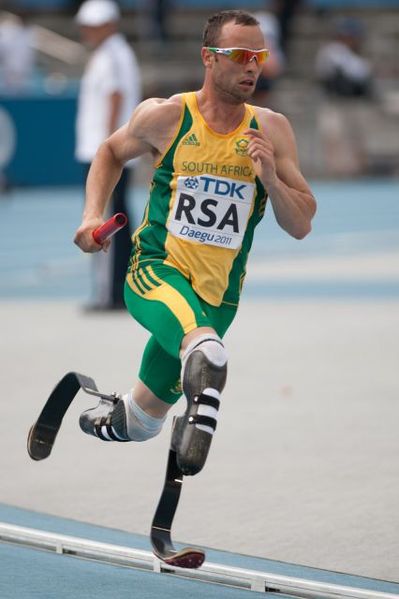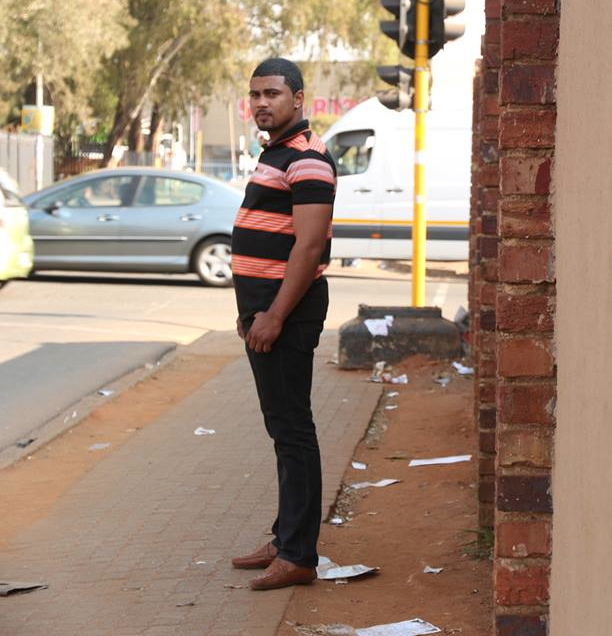Facts and Opinions contributor Ruth Hopkins is a senior journalist with the Wits Justice Project in Johannesburg, South Africa. She wrote a book on trafficking in women in/to Europe, which was published in Dutch in 2005 (Ik laat je nooit meer gaan, “I will never let you go again”). She is agonisingly close to finishing her first novel, on women locked up in Magdalene convents in Ireland. Hopkins was named the South African print Legal Journalist of the Year in 2012.
Hopkins writes on Justice, in F&O’s Dispatches section.
A selection of Ruth Hopkins’ work on F&O:
The Prison Rodeo By Ruth Hopkins
Angola prison, formally known as the Louisiana State Penitentiary, is built on 18,000 acres of land in an American river basin nestled in between the Mississippi river and Lake Killarney. It would be beautiful if I hadn’t seen the disturbing pictures of African American prisoners picking cotton while a big white guy on a horse oversees their work. Angola prison takes its name from the Angolan slaves who picked cotton on the slave plantation that used to thrive on these very grounds.

Filth, disease, sex and violence for South African female inmates. By Ruth Hopkins
International Women’s Day on March 8 turns the spotlight on the fate of women, in particular their achievements and the slow pace of progress. An often overlooked group are women prisoners. Their needs, views and struggles barely figure in South African feminist discourse, let alone in the mainstream debate in society.
South African prison inmate ‘tortured to death’. By Ruth Hopkins
Several inmates incarcerated in South Africa’s Mangaung prison have died under suspicious circumstances. Documents that were recently provided to the WJP and eyewitness accounts contain shocking allegations that inmates were tortured before they died, while the prison registered their deaths as either “natural” or “suicide”. More worryingly, the Department of Correctional Services (DCS) is aware that G4S’ recordkeeping of deaths in custody is not up to standard and that deaths through torture may go undetected. Despite that knowledge, it has not held G4S accountable.
Oscar Pistorius and South Africa’s VIP Justice. By Ruth Hopkins
 Oscar Pistorius’ murder trial in South Africa, dubbed the trial of the century, has hogged the limelight since he was arrested and charged for killing his girlfriend Reeva Steenkamp on Valentine’s Day last year. The “OP” case however, is hardly representative of South Africa’s criminal justice system — but rather exposes the ugly face of class justice. The trial has revealed a level of quality of the legal process that the criminal justice system is capable of producing, but ordinary South African citizens are by no means guaranteed a fair trial.
Oscar Pistorius’ murder trial in South Africa, dubbed the trial of the century, has hogged the limelight since he was arrested and charged for killing his girlfriend Reeva Steenkamp on Valentine’s Day last year. The “OP” case however, is hardly representative of South Africa’s criminal justice system — but rather exposes the ugly face of class justice. The trial has revealed a level of quality of the legal process that the criminal justice system is capable of producing, but ordinary South African citizens are by no means guaranteed a fair trial.
Private prison operator accused of using drugs and electric shocks. By Ruth Hopkins
A South African prison, run by the beleaguered multinational private security company G4S, allegedly forcibly injected inmates with antipsychotic medication and used electroshocks to subdue and control them. Prisoners, warders and health care workers said that involuntary medication was regularly practised at the Mangaung Correctional Centre near Bloemfontein. The company, G4S, denies any acts of assault or torture. The allegations are according to at least 35 sources – prisoners as well as security guards, prison and health officials – and based on medical records seen by reliable sources, legal documents and video footage shot inside the prison.
What has gone so horribly wrong with South Africa’s police? By Ruth Hopkins
Steven Mothao was walking back home from a piece job on August 10, 2010, through Fordsburg in Joburg. Out of nowhere, three police officers appeared and pushed him against a wall. While onlookers gawked, the police officers slammed Mothao into a police van. He was detained in a police cell for 22 hours. For the first 14, he wasn’t offered a glass of water. Then Mothao was out on the street again. The police officers never identified themselves, they did not have an arrest warrant, and they did not inform Mothao of the reasons for his arrest. He sued the Minister of Police for damages and was awarded R150 000 in March.


